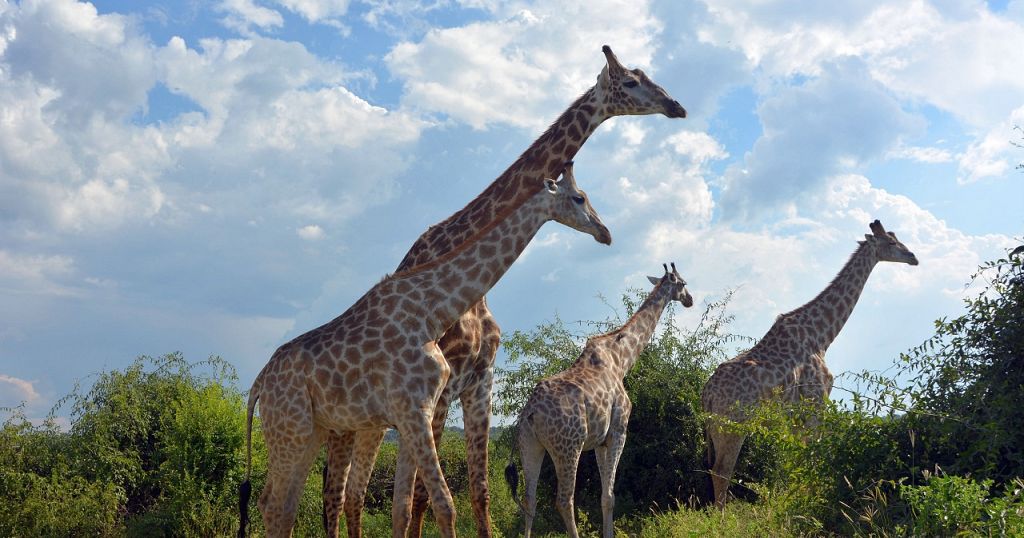In recent years, ecotourism has gained significant attention as a sustainable and responsible way of experiencing the world’s natural wonders. Africa, with its rich biodiversity and stunning landscapes, has emerged as a top destination for ecotourism enthusiasts. This article explores the importance of ecotourism in Africa and highlights six African countries that stand out as world-class ecotourism destinations.
Importance of Ecotourism in Africa
Africa’s diverse ecosystems and abundant wildlife make it an ideal setting for ecotourism. This form of tourism destination brings several benefits to the continent, including:
Conservation of Natural Resources: Ecotourism promotes the conservation of Africa’s precious natural resources, such as national parks, reserves, and wildlife habitats. By emphasizing sustainable practices, ecotourism helps protect these areas from degradation and exploitation.
Economic Benefits for Local Communities: Ecotourism provides economic opportunities for local communities living in or near ecotourism destinations. It generates employment, supports local businesses, and contributes to the overall development of these communities.
Preservation of Cultural Heritage: Many ecotourism experiences in Africa allow visitors to immerse themselves in the local culture and traditions. This not only helps preserve indigenous knowledge and practices but also creates a deeper appreciation for the cultural heritage of the region.
African Countries Promoting Ecotourism
Several African countries have recognized the value of ecotourism and actively promote sustainable tourism practices. Here are six countries that stand out as top ecotourism destinations:
Kenya: A Haven for Safari Enthusiasts
Kenya is renowned for its vast savannahs, diverse wildlife, and the Great Migration. Visitors can witness incredible wildlife spectacles in iconic national parks such as Maasai Mara and Amboseli. Kenya’s commitment to wildlife conservation and community-based tourism initiatives has made it a leader in African ecotourism.
South Africa: Diverse Wildlife and Scenic Landscapes
South Africa boasts a remarkable range of ecosystems, from the iconic Kruger National Park to the breathtaking Table Mountain. Visitors can enjoy wildlife safaris, whale watching along the coast, and exploring the unique Cape Floral Kingdom. South Africa’s ecotourism offerings cater to various interests and budgets.
Tanzania: Home to the Serengeti National Park
Tanzania is synonymous with the Serengeti, one of the world’s most iconic wildlife reserves. Witnessing the annual Great Migration, where millions of wildebeest and other herbivores traverse the plains, is a once-in-a-lifetime experience. Tanzania also offers the opportunity to climb Mount Kilimanjaro, Africa’s highest peak.
Botswana: Exploring the Okavango Delta
Botswana is renowned for its pristine wilderness and the Okavango Delta, a UNESCO World Heritage Site. This unique ecosystem supports an incredible array of wildlife, including elephants, hippos, and numerous bird species. Exploring the delta by mokoro (traditional canoe) and experiencing luxury safari camps make Botswana a top ecotourism destination.
Uganda: Discovering the Bwindi Impenetrable Forest
Uganda is a haven for primate enthusiasts, with its star attraction being the endangered mountain gorillas in Bwindi Impenetrable Forest National Park. Trekking to encounter these gentle giants in their natural habitat is a truly awe-inspiring experience. Uganda’s commitment to sustainable gorilla tourism has become a model for other countries.
Namibia: A Desert Wilderness
Namibia offers a unique blend of ecotourism and desert adventure. The Namib Desert’s towering sand dunes, the Skeleton Coast’s rugged beauty, and the wildlife-rich Etosha National Park are among the highlights. Namibia’s conservation efforts, community-based tourism initiatives, and dark sky reserves make it a fascinating ecotourism destination.
Unique Ecotourism Experiences in Africa
Africa provides a plethora of unique ecotourism experiences that cater to various interests and preferences:
Wildlife Safaris and Game Drives: Embarking on a wildlife safari or game drive allows visitors to observe Africa’s iconic wildlife up close. From lions and elephants to cheetahs and giraffes, the diversity of species is awe-inspiring.
Gorilla and Chimpanzee Trekking: Trekking through lush forests to encounter gorillas and chimpanzees in their natural habitat is a bucket-list experience. Countries like Uganda and Rwanda offer guided tours that contribute to conservation efforts.
Desert Adventures and Dune Bashing: Exploring the desert landscapes of Africa through exhilarating activities like dune bashing, quad biking, and star gazing offers a unique perspective on the continent’s natural wonders.
Cultural Immersion and Community-based Tourism: Engaging with local communities and participating in cultural activities, such as traditional dances and crafts, provides a deeper understanding of Africa’s diverse cultures and fosters cultural exchange.
Sustainable Practices in African Ecotourism
To ensure the long-term viability of ecotourism in Africa, sustainable practices are crucial:
Conservation Initiatives and Wildlife Protection: African countries have implemented conservation initiatives to protect wildlife and their habitats. This includes anti-poaching efforts, wildlife research, and habitat restoration projects.
Responsible Tourism and Minimizing Environmental Impact: Encouraging responsible tourist behavior, promoting waste management practices, and minimizing the use of single-use plastics are essential steps in reducing the environmental impact of tourism.
Supporting Local Communities and Sustainable Development: Engaging local communities in ecotourism ventures through community-based tourism projects ensures that economic benefits are shared and contribute to sustainable development.
Challenges and Future of Ecotourism in Africa
While ecotourism in Africa has made significant strides, several challenges need to be addressed for its future sustainability:
Balancing Conservation and Tourism Development: Striking a balance between conserving natural resources and promoting tourism development requires careful planning and sustainable management practices.
Climate Change and its Impact on Wildlife and Habitats: Climate change poses significant threats to Africa’s wildlife and habitats. Adaptation strategies, reducing carbon emissions, and promoting sustainable practices are crucial for mitigating these effects.
Ensuring Responsible Tourist Behavior: Educating tourists about responsible behavior, such as respecting wildlife and ecosystems, following ethical wildlife viewing guidelines, and supporting local communities, is essential to minimize negative impacts.
Africa’s unparalleled natural beauty, diverse wildlife, and commitment to sustainable tourism make it a prime destination for ecotourism. With countries like Kenya, South Africa, Tanzania, Botswana, Uganda, and Namibia leading the way, travelers can experience the wonders of nature while contributing to conservation efforts and supporting local communities.




